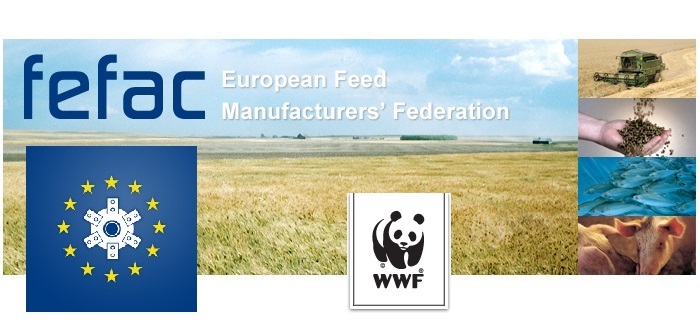WWF has accused many European animal feed companies of “taking advantage” of the lack of consumer awareness about soya in order to do nothing about responsible sourcing issues.
It’s a charge which FEFAC, the European Feed Manufacturers’ Federation, says fails to acknowledge current developments in the market, with WWF’s new Soya Scorecard focusing on only two responsible soya schemes, while many other credible responsible schemes are overlooked.
The new scorecard, released in advance of the 11th annual conference of the Round Table on Responsible Soya (RTRS) taking place in Brazil this week, identifies 16 companies as the European leaders in soya sustainability initiatives. The criteria measured included transparency on total soya usage, the sourcing of responsibly produced soya and efforts to remove the deforestation and conversion of natural habitats from soya supply chains.
“WWF is pleased to see some real frontrunners especially in the retail and dairy sectors, buying most of their soya from RTRS or ProTerra certified producers,” said WWF’s senior advisor for market change, Sandra Mulder. “It is clear, however, that many companies take advantage of the lack of consumer awareness about soya in order to do nothing on this issue, with 69 companies deciding not to respond to our call for transparency. This is more than half of the companies approached by WWF.
“Many Europeans still don’t know that they eat on average 61 kilos of soya per year, mostly embedded in their meat and dairy products, and what impact irresponsible soya production can have on the ecosystems of South America. In most cases, consumers have no proof that the products they eat do not include deforestation”.
The new scorecard assesses 133 leading European retailers, food service companies, consumer goods manufacturers, dairy companies, meat, egg and feed companies on actions related to sourcing responsible soya and eliminating deforestation from the animal products they sell. The companies are based in Belgium, Denmark, Finland, France, the Netherlands, Poland, Sweden, Switzerland and the UK.
FEFAC, in response, said that currently more than 5 million tonnes of soya, compliant with FEFAC’s own soya sourcing guidelines, are used by the EU compound feed industry.
“In the trade of responsible soya, FEFAC can only play a facilitating role,” it said. “It is up to market operators themselves to decide to buy soya which is produced under one of the approved schemes.”
In that context, however, it added that the number of companies in Europe doing so, is rapidly increasing.
While stating that WWF is and has always been a very important partner in the transition towards responsible soya, FEFAC said that the current questions in the organisation’s scorecard failed to acknowledge the current developments in the market. It also maintained that many other credible responsible soya schemes, in addition to RTRS and ProTerra, deserved acknowledgement.


